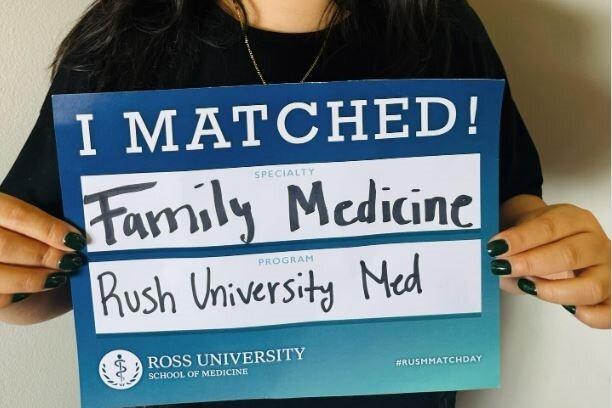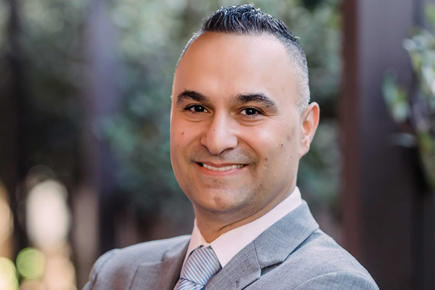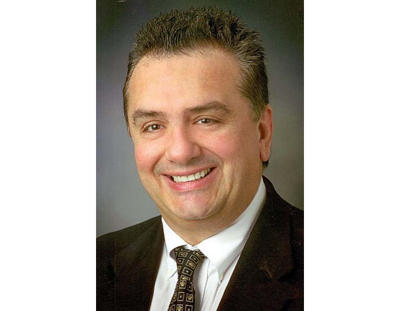She’s a bubbly spitfire ready to begin her pathology research in southern Cali but before she steps into that role, she pauses to absorb the public health wakeup call. “This crisis is raising awareness and showing the power and importance of public health,” said Jessica Hudson, MD, a student in Chamberlain University’s Master of Public Health (MPH) program and an alumna of Ross University School of Medicine, of the COVID-19 pandemic. “I am classically trained in medicine but adding the public health dimension allows me to bridge the traditional education with how it’s going to affect the population and the broader consequences of what can happen – it’s a whole new way to think about medicine.”
Recently matching with a hospital in Loma Linda, California, Jessica looks forward to beginning her work in pathology this summer. “I’m going to be a doctor’s doctor. Every type of tissue comes to us and it’s an investigative process. We have to really use our community resources to make sure that diagnosis is right because whatever we say on paper guides that patient for life.” Jessica admits pathology wasn’t the medical route she expected to take given her social personality. But after two years of hospital training in the emergency room and intensive care units, she realized she was too emotionally invested. “I cried when patients cried and I laughed when patients laughed. It wasn’t for me. Now I’ve found a way to help patients in a profound way but from a distant setting.”
Adding Public Health to Her Resume
A lifelong learner, Jessica wanted to remain medically relevant so she enrolled in the MPH program last July, which gave her “the perfect holistic view of how to help others.” She then went a step further and joined the MPH student group, now serving as its vice president until her residency begins in July. When asked why she became a student-group advocate, Jessica said, “I wanted to be a spokesperson and share the benefits of the program with other Ross Med students to let them know how this program can round out their medical education.”
And just in case studying and serving as an MPH leader wasn’t enough, Jessica also became a clinical skills coordinator for Ross Med in January while her husband Graham finishes his last semester. “I get to teach students how to write notes, engage with patients and conduct formal interviews while I keep my skills sharp.”
Getting Hitched and Hitting the Road
Jessica and Graham started dating during their undergrad studies in California and have endured a successful long-distance relationship. “He was my lobster,” she joked, referencing a Friends TV show quote. Heading to Ross in the fall of 2015, Jessica spent the next two years on the island and then started hospital rotations in Florida and in California, where she was able to spend quality time with Graham to exchange wedding vows and brace for his big announcement – he was following in her footsteps and heading to Ross Med. “I was like – ‘What? Now? For two years? Oh, you have got to be kidding’,” Jessica laughed.
While proud of her husband and his ambition, it did not deter Jessica from rounding out her clinical experience. She packed up for her own adventure – driving cross country to work hospital rotations on the East Coast in Connecticut before stopping in the Midwest for a couple quick stints in Michigan and Chicago. And then she went global.
To Russia or Bust
Retrieving her warmest gear, Jessica set out to brave a six-week rotation in Russia in January 2019, thanks to Ross Med’s global health opportunity. “It sounded wild and I thought if I can do this kind of winter, I can do anything.” Not knowing a lick of Russian and living like a local, Jessica discovered a whole new healthcare system firsthand. “They have specialty hospitals,” she explained. “There’s a hospital just for cardiology, one just for dermatology and another just for those with infectious diseases whereas we have patients intermixed all throughout. So you really rely on the EMT to take you to the right hospital based on your presentation and it can be tough because a lot of severe illnesses can appear similar at first.” And there’s one central laboratory that all hospitals feed into, which means cultures and specimens can sometimes take weeks or longer before results are available.
Jessica described the atmosphere like a community setting where patients play cards and commiserate with one another and usually bunk four to a room. She said the environment for patients and healthcare workers alike is much more relaxed than in the U.S. because healthcare is government funded so there doesn’t seem to be the same sense of urgency to discharge patients. “It was a very rewarding experience to learn how different countries operate. It was definitely a once-in-a-lifetime experience and it made me grateful for everything we have here.”
Staying Close to Family
Soon after returning home, Jessica found ways to stay connected to Graham but eventually decided it wasn’t enough. She landed the Ross Med clinical skills coordinator role and packed her bags for a four-month jaunt to the island while her radiology bound husband finished up classes. At the end of April – while Jessica stays on the West Coast – Graham will spend a couple months in Florida before hopefully landing a rotation near his wife. “Long distance is a commitment and not for everyone. We’ve been married for two years but we’ve been apart for so much of it that we’re still in the honeymoon phase.”
Staying in touch with family is top of mind for Jessica right now. “Social isolation can be quite serious on your mental health so I’m in communications with my family and loved ones now more than ever.” Jessica is also staying up to date on COVID-19 research and data and just registered on the California government site to volunteer in a hospital or help screen patients. “There’s such a shortage of healthcare professionals that if I can help in some way, I certainly will.”
What’s Ahead
Looking at the future of healthcare, Jessica acknowledges that the pandemic has definitely shifted the medical lens. “There’s no going back after this. There will be even more precautions going forward with anyone who presents with cold or flu-like symptoms. We will say ‘remember when we had to use social distancing and quarantine and practice more hygiene?’ And then we’ll let the patients know that we still need to do all that – now and always.”
While waiting to volunteer on the front lines and start residency, Jessica is finishing up her clinical coordinator duties and can’t help but give a little more. “I still feel like there’s more to do.” She’s now working on a project to connect Ross Med alumni with Ross Med students in a mentor-mentee dynamic, and the immediate response from both audiences has been overwhelmingly positive. “What I love about Ross Med is that students are eager to help each other whether they’ve graduated or are in classes now. There are always more ways to give back to the Ross Med community.”
Appreciative and Thankful
We appreciate your commitment to the continued well-being of our Adtalem community and support during this unprecedented time. Please visit RUSM and Chamberlain University websites for the latest updates regarding COVID-19.



